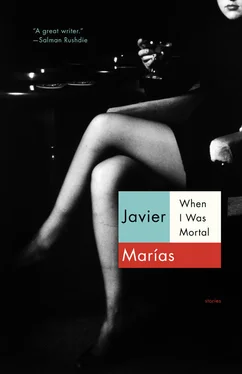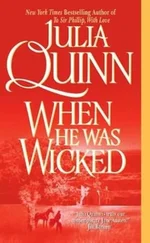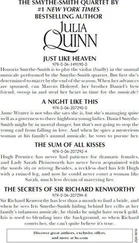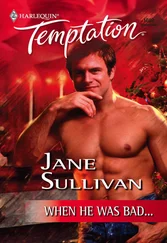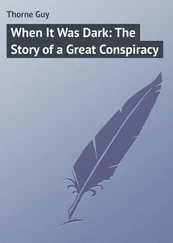Javier Marias
When I Was Mortal
“Marías is one of the best contemporary writers.”
— J. M. Coetzee
“By far Spain’s best writer today.”
— Roberto Bolaño
“One of the writers who should get the Nobel Prize is Javier Marías.”
— Orhan Pamuk
“Stylish, cerebral.… Marías is a startling talent.… His prose is ambitious, ironic, philosophical and ultimately compassionate.”
— The New York Times
“It is a rare gift, to be offered a writer who lives in our own time but speaks with the intensity of the past, who comes with the extra richness lent by a foreign history and nonetheless knows our own culture inside out. Yet, strangely, Javier Marías — who is famous in Spain and garlanded with prizes from the rest of Europe — remains almost unknown in America. What are we waiting for?”
— The New York Times Book Review
“Javier Marías is one of the greatest living authors. I cannot think of one single contemporary writer that reaches his level of quality. If I had to name one, it would be García Márquez.”
— Marcel Reich-Ranicki, Das Literarische Quartett
“Javier Marías is such an elegant, witty and persuasive writer that it is tempting simply to quote him at length.”
— The Scotsman
“A supreme stylist.”
— The Times (London)
“Marías uses language like an anatomist uses the scalpel to cut away the layers of the flesh in order to lay bare the innermost secrets of that strangest of species, the human being.”
— W. G. Sebald
“His prose possesses an exquisite, almost uncanny observation, re-creating moments and moods in hypnotic depth.”
— The Telegraph (London)
“Javier Marías is a novelist with style.… His readers enter, through him, a strikingly and disturbingly foreign world.”
— Margaret Drabble
“Marías writes the kind of old-fashioned speculative prose we associate with Proust and Henry James.… But he also deals in violence, historical and personal, and in the movie titles, politicians, and brand names and underwear we connect with quite a different kind of writer.”
— London Review of Books
Javier Marías was born in Madrid in 1951. He has published thirteen novels, two collections of short stories, and several volumes of essays. His work has been translated into forty-two languages, in fifty-two countries, and won a dazzling array of international literary awards, including the prestigious Dublin IMPAC award for A Heart So White . He is also a highly practiced translator into Spanish of English authors, including Joseph Conrad, Robert Louis Stevenson, Sir Thomas Browne, and Laurence Sterne. He has held academic posts in Spain, the United States, and in Britain, as Lecturer in Spanish Literature at Oxford University.
The translator would like to thank Javier Marías, Annella McDermott, and Ben Sherriff for all their help and advice.
M.J.C.
Of the twelve stories that make up this volume, I think eleven were commissioned. That means that I did not have absolute freedom when writing those eleven, especially as regards length. Three pages here, ten pages there, forty or so there, the requests are very varied and one tries to fulfil these requirements as best one can. I know that in two of the stories, I found the limitations constraining, which is why they appear here in expanded form, with the space and rhythm which — once begun — they should have had. As for the rest, including those that fulfilled some other external requirement, I don’t think that the commission compromised them in any way, at least not after a time and now that I’ve grown accustomed to them as they are. You can write an article or a story on commission (though not, in my case, a whole book); sometimes even the subject matter may be given and I see nothing wrong in that as long you manage to make the final product yours and you enjoy writing it. Indeed, I can only write something if I’m enjoying myself and I can only enjoy myself if I find the project interesting. It goes without saying that none of these stories would have been written if I had felt no interest in them. It is perhaps worth reminding those sentimental purists who believe that, in order to sit down in front of the typewriter, you have to experience grandiose feelings such as a creative “need” or “impulse”, which are always “spontaneous” or terribly intense, that the majority of the sublime works of art produced over the centuries — especially in painting and music — were the result of commissions or of even more prosaic or servile stimuli.
In the circumstances, however, it may not be out of place to detail briefly how and when these stories were published for the first time and to comment on some of the impositions that soon became absorbed into them and are as much part of the story as any other chosen element. They are arranged in strict chronological order of publication, which does not always coincide with the order in which they were written.
“The Night Doctor” appeared in the magazine Ronda Iberia (Madrid, June 1991).
“The Italian Legacy” was published in the literary supplement of the newspaper El Sol (Madrid, 6 September, 1991).
“The Honeymoon” appeared in the magazine Balcón (special Frankfurt edition, Madrid, October 1991). This story shares the central plot and several paragraphs with a few pages from my novel Corazón tan blanco , 1992 (English translation: A Heart So White , Harvill, 1995). The scene in question continues in the novel, whereas here it breaks off, allowing a different resolution, which is what makes of the text a story. It’s a demonstration of how the same pages may not necessarily be the same pages, as Borges showed, better than anyone, in his story: “Pierre Menard, autor de El Quijote ” (“Pierre Menard, author of Don Quixote ”).
“Broken Binoculars” was published in the ephemeral magazine La Capital (Madrid, July 1992) with the worst printer’s error ever perpetrated on one of my texts: they failed to print the first page of my typescript, so that the story was published incomplete and starting abruptly in media res . Despite that, it seemed to survive the mutilation. I was asked to write a story with a Madrid setting, although, to be honest, I don’t really know what that means.
“Unfinished Figures” appeared in El País Semanal (Madrid and Barcelona, 9 August, 1992). On this occasion, the commission was positively sadistic. In a very short space I had to include five elements, which were, if I remember rightly: the sea, a storm, an animal … I’ve forgotten the other two, proof that they are now completely absorbed into the story.
“Flesh Sunday” appeared in El Correo Español-El Pueblo Vasco and in Diario Vasco (Bilbao and San Sebastián, 30 August, 1992). In this very short story, the one requirement was, I believe, that it should have a summer setting.
“When I Was Mortal” was published in El País Semanal (Madrid and Barcelona, 8 August, 1993).
“Everything Bad Comes back” formed part of the book Cuentos europeos (Editorial Anagrama, Barcelona, 1994; published in English as The Alphabet Garden: European Short Stories , ed. Pete Ayrton, Serpent’s Tail, 1994). It’s probably the most autobiographical story I’ve ever written, as will become clear if you read my article “La muerte de Aliocha Coll” included in Pasiones pasadas (Editorial Anagrama, Barcelona, 1991).
Читать дальше
